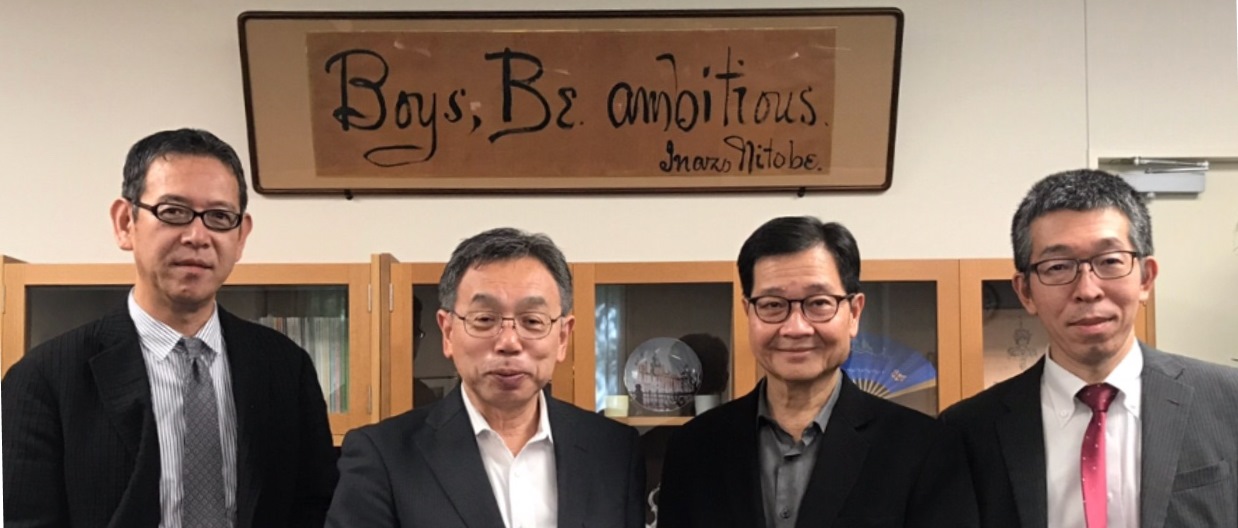
Select Page
Asian Productivity Organization (APO) Secretary-General Dr. Santhi Kanoktanaporn on his first visit to Hokkaido University in Japan met university President Professor Toyoharu Nawa and Faculty of Engineering Dean Professor Takao Masuda to explore possible collaboration in the agriculture sector. The APO initiative is aimed to improve food security in member countries through the adoption of technology-driven agricultural transformation.
Dr. Santhi explained that the APO was working to develop an Agriculture Transformation Framework and that the Secretariat was keen to conduct a pilot study to evaluate how precision agriculture could be adopted in member countries. The Secretary-General also said that the APO would like to explore opportunities for a pilot project on the use of sensor-based technologies to make agriculture more manageable and productive.

(L–R) Faculty of Engineering Dean Professor Takao Masuda, Hokkaido University President Professor Toyoharu Nawa, APO Secretary-General Dr. Santhi Kanoktanaporn, and APO Agriculture Consultant Kenji Watanabe at Hokkaido University on 17 August 2018.
The two organizations share a common view of future food challenges, including a global food shortage, shrinking arable land, and increasing water crises. While the APO is focusing on initiatives for transformation of the agriculture sector in member countries, Hokkaido University has set up an Establishment of Science and Technology Leadership Seminar for Robust Agriculture, Forestry and Fisheries Industries to focus on solutions for the challenges.
Hokkaido University has a variety of research programs under its robust agriculture, forestry, and fisheries industries project. They include research on technologies like unmanned farm machinery for improving efficiency in the field, use of data-processing technologies for producing commodities, and technology for converting biomass into alternative chemical resources.
Set up in 1876 as Sapporo Agricultural College and renamed Hokkaido University in 1947, the institution has been at the forefront of research and innovation in the agriculture sector, including automated farm machinery.
Sharing the Secretary-General’s enthusiasm, President Nawa stated that the university was open to knowledge and technology transfers and suggested that the two organizations continue discussions to identify areas of cooperation and assess feasibility. He also pointed out that the APO should engage governments and related agencies to drive its transformation initiative.